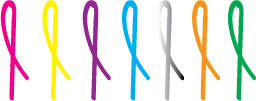Does my elderly mother need to know?
‘I don’t want to tell my mother she has cancer. She’s old. It would devastate her.’ We want to protect our children from life’s ugliness when they are little, and we want to protect our sick and elderly parents from the ugly truth of their mortality.
We get this request relatively frequently, more from patients from old world cultures, where physician patient communication is not the norm. Often, there is a language barrier, and the child is the caregiver and communicator, and we have to negotiate with that person. We have to depend on them to communicate honestly, and depend on them to provide care.
When there is no language barrier, I ask the patient directly, “how much do you want to know?” If she says, talk to my children, they will make the decisions, then that is our answer. But often, she will want to know what her disease is, what her treatment options are, and how long she has to live.
Patients know when something bad is going on in their body. They are being taken for scans and biopsies, they don’t feel well, and people are talking around them. It creates anxiety and fear of the unknown. If we are going to treat them, they need to know why. And if we are not, they deserve to know how much time they may have. We usually have a lot of unfinished business. It helps everyone to be able to get their affairs in order, both personal and money business.
And, if everyone dances around the cancer diagnosis, not acknowledging that it exists, then it can create anxiety whether their symptoms are going to be managed appropriately. “Will I get pain medicine, if I am in pain”. It makes it more humane to assure the patient that their needs will be taken care of.
As Oncologists, these are difficult conversations, but it is a disservice to patients and their families, not to have them.
